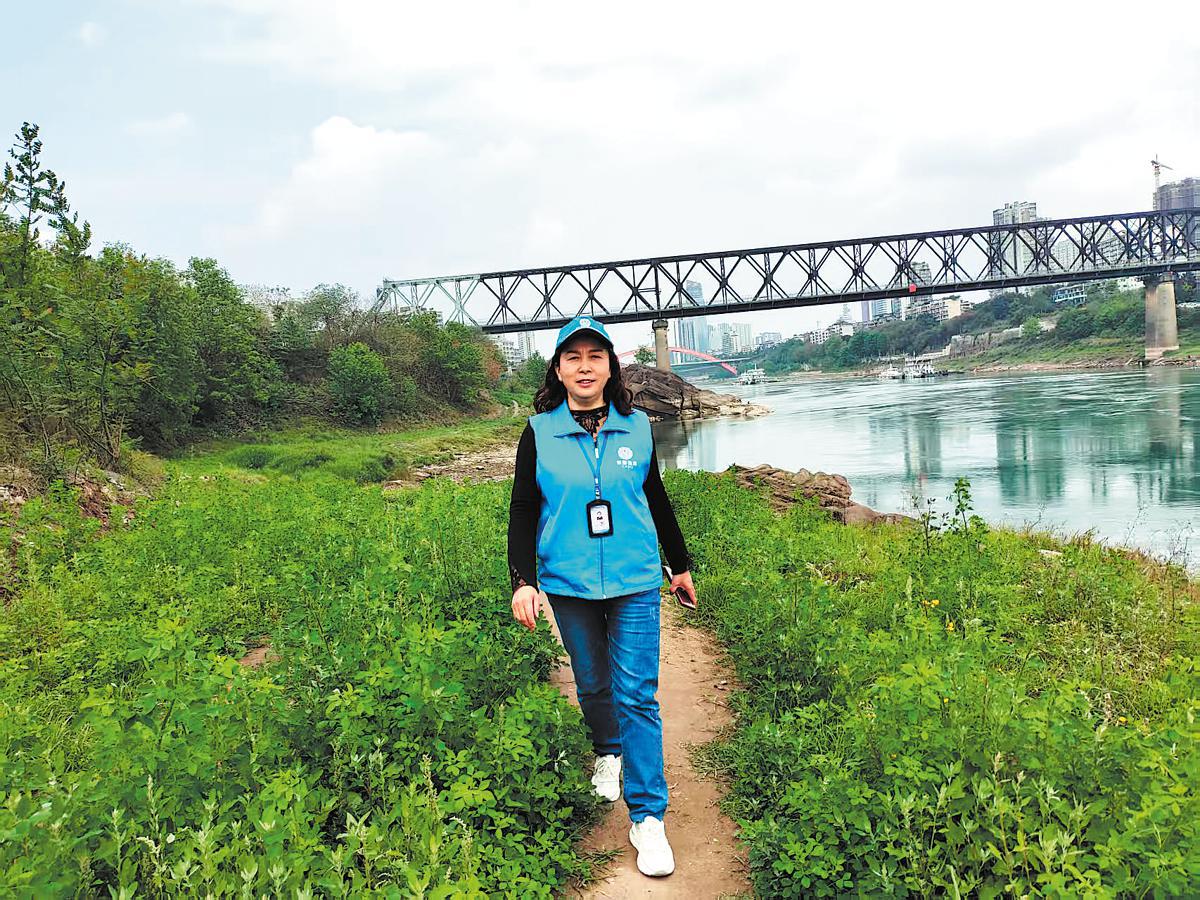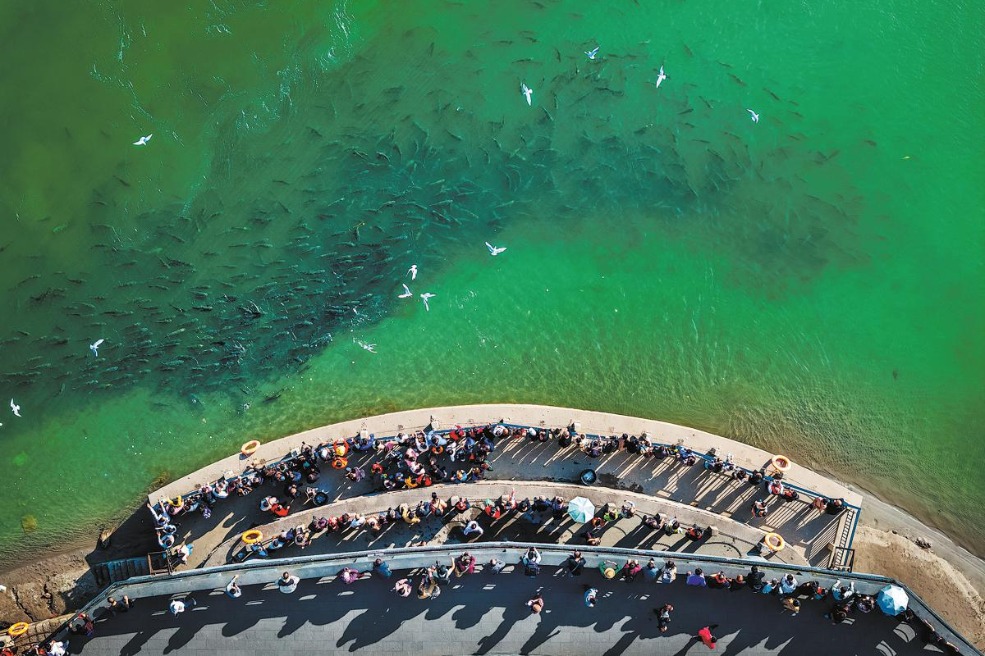Former fishers at fore of refreshing Yangtze
Half way into decade-long fishing moratorium, Yibin's ex-anglers witness ecological recovery of Asia's longest waterway


Inevitable choice
Liang Duogang, 47, another former fisher who became an assistant patroller in Yibin's Xuzhou district, still vividly remembers his first catch in the Yangtze.
It was one night in 1996, a neighbor had taken him net fishing on the river while he was home from work.
"It took me only three hours to earn 300 yuan ($42), far better than any of my odd jobs," Liang said. He decided to buy a boat and start his fishing career.
Over the years, Liang witnessed the gradual decline of fish stocks in the Yangtze.
"In the 1990s, a single net cast could yield over 5 kilograms of fish," he said, adding that he even occasionally caught big fish weighing over 15 kg.
However, after 2010, a whole day's effort might yield only 2.5 to 3 kg.
He noticed that after the year 2000, catches in the Yangtze became fewer and smaller year by year as a growing number of larger fishing boats appeared.
"The Yangtze really needs a good break," he said.
After quitting fishing, Liang signed up to join the patrol team, hoping to do his bit to help the mother river recover.
"A relative of mine once offered me a job paying over 6,000 yuan a month — double my salary as a patroller — but I turned it down," Liang said. "I'd rather be by the river, with the fish. This is where I belong."
Zhao Huanqing, chief economist at Xuzhou's agriculture and rural affairs bureau who oversees the district's fisheries administration, said half of the district's 40 fishery patrol team members are former fishers.
Facing challenges in lengthy patrol routes and staff shortages, the district has installed 47 sets of real-time video monitoring devices along the Yangtze.
"The devices, placed in high-yield fishing spots identified by the former fishers, will trigger alerts automatically at any detected illegal fishing activity," Zhao said.
In Yibin, 75 former fishers have joined 12 fishery patrol teams. With their involvement, the ecological restoration of the stretch of the Yangtze in Yibin has achieved remarkable results.
Monitoring data shows that water quality in the Yibin section of the Yangtze's main channel has consistently remained at Grade II level — the second highest in China's five-tier surface water quality grading system.
According to Yibin's fishery administration, the number of fish species found in the local stretch of the Yangtze has rebounded from 48 in 2019 to 92 last year, with increasingly frequent sightings of endangered species such as the Yangtze sturgeon.























